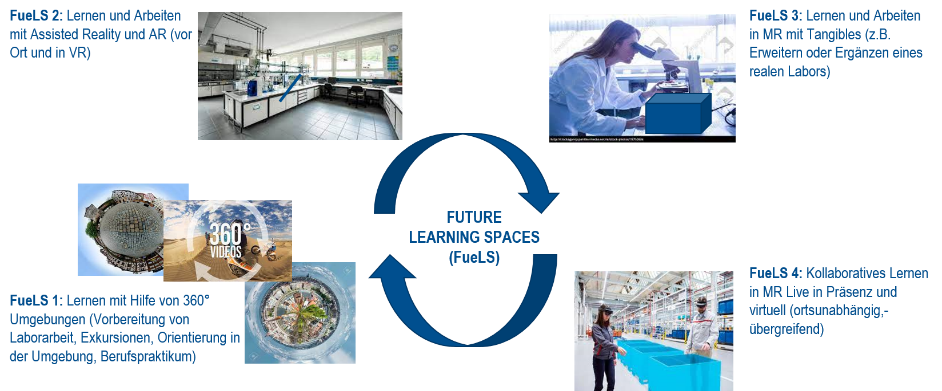Future Learning Spaces (fuels)
fuels for future
As part of the joint project, Goethe University Frankfurt, TU Darmstadt and Darmstadt University of Applied Sciences are working on the media didactic and technical design and creation of virtual teaching and learning scenarios using 360°, augmented reality (AR) and virtual reality (VR) technologies.
A mix of virtuality and reality
Depending on the scenario and requirements, physical and digital spaces and elements are mixed together. For example, AR can be used to add digital information and learning content on demand to a laboratory or to support on-site action sequences with the help of assisted reality approaches.
The project team develops rooms and scenarios, but also sets up qualification, advice and support services for teachers and students in all subject areas.

Virtual reality in teaching
VR/AR/360° technologies are used to create new and complementary approaches for students. The teaching and learning scenarios take up new opportunities to study and teach in hybrid spaces in a collaborative and distributed manner, simultaneously and with a time delay, individually and together.
VR is used in teaching, for example to understand complex machine processes or to train behavior, soft skills and motor skills while experiencing the feeling of presence.
Advantages of immersive technologies:
- Experience situations/environments that do not currently exist or are not accessible
- Simulate dangerous procedures or work processes
- Change perspectives and take on roles
- Present learning content that requires motor skills
Weitere Informationen
Information on the application at Darmstadt University of Applied Sciences: "Imaginarium" as part of the fuelsME framework is a VR room for promoting creativity using the latest AI technology for speech and image processing.
As a lecturer, you can gain exclusive access to the Imaginarium and explore the VR environment with your students and teach there. Send your request to Andreas Fuchs and have a code generated. The requests are valid until the end of the project, December 31, 2025.